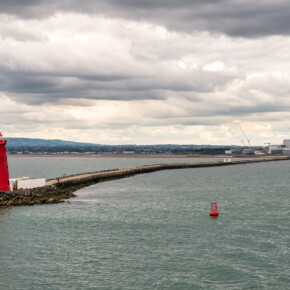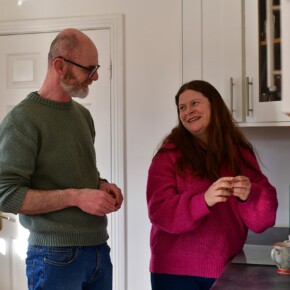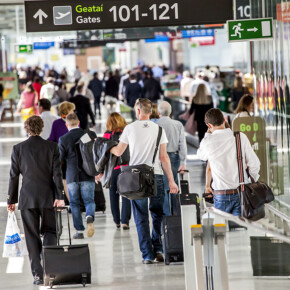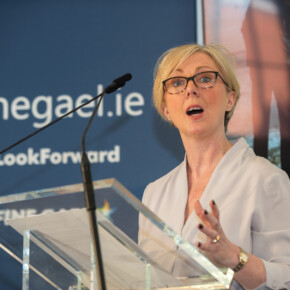Gender equality referendum slips into 2024
Mike Finnerty 25 Sep 2023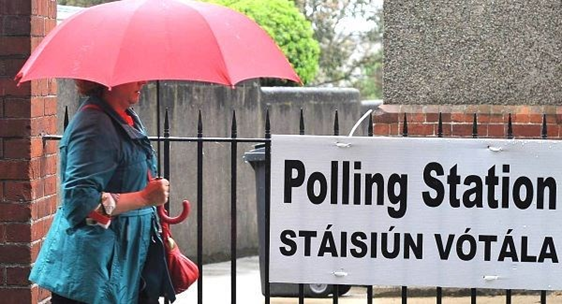
A referendum on the role of women in the home has been delayed until February at the earliest, the Taoiseach has said.
Speaking to the Irish Examiner, An Taoiseach Leo Varadkar said that the proposed November timeline for the vote was looking unlikely, and wants to give the Electoral Commission as much time as they need to lay out a comprehensive and detailed information campaign.
Varadkar said he was “very conscious” of comments by Electoral Commission chief Art O’Leary, who said that a full information campaign requires up to 16 weeks to be fully carried out before a referendum.
He said that he wants to give the Electoral Commission as much time as possible to carry out their information campaign, as he noted there is a risk of misinformation.
“There are people trying to make out that we’re removing the protection of family from the Constitution or removing the protection of marriage from the Constitution but that’s categorically not the case,” he said.
Discussing the role of the Electoral Commission, Varadkar said the upcoming referendum would be the first time that they will be in charge of facilitating a referendum.
“They don’t just have the role of running the referendum itself in terms of ballot boxes and ballot papers, they also have the role of running the information campaign. I’ve heard him [O’Leary] say in interviews that he would need maybe three or four months lead-in time to get that right.”
“If the Electoral Commission is taking the view that they would need three to four months lead in time, I think we’d have to take that into consideration.”
“That’s why I want to sit down with with Electoral Commission and figure that out, because I’ve been involved in a lot of referendum campaigns, some transformational ones, most of which we’ve won, some of which we lost or nearly lost, and they’re often lost or nearly lost by accident because of misinformation or disinformation or extraneous issues coming into play.”
“I think it’s important that we don’t allow that to happen,” he said.
The referendum, which was agreed as part of the coalition agreement between Government parties in 2020, looks to update the language surrounding the role of the woman in the home.
Varadkar said the crux of the referendum was updating the constitution to update it in line with modern sensibilities.
“I think everyone in Ireland now accepts and understands that there are families that are not based on marriage, whether they’re lone-parent families, or whether their family is led by a guardian or grandparent,” he noted.
The referendum, which was formally announced in March of this year, has seen numerous delays, most notably in the publication of the wording that will appear on the ballot paper.
The exact wording of the referendum was supposed to be published in May, but subsequently missed it’s deadline, and slipped into a state of limbo once the Dáil summer recess began.
Speaking on RTÉ’s The Week in Politics, Minister Roderic O’Gorman said that Governemnt was “close to the final wording” of the referendum, but repeated Varadkar’s remarks that a four-month lead-in time is required to allow the public to make an informed decision.
“Any attempt to amend the Constitution is significant and needs to be well thought out – every word we put in the Constitution has very significant meaning and can be interpreted by the courts,” he said.
The delay has been criticised by social justice groups, as well as political figures.
Director of the National Women’s Council, Orla O’Connor said “our Constitution, our foundational document, contains restrictive language on women’s role in society. It is outdated and carries a legacy of the mistreatment of women up to today.”
“It is important this is amended so that it reflects the value of care and everyone’s role in care right across our society.”
Labour leader Ivana Bacik said “this referendum has been deferred several times before, but there is no excuse now – the Gender Equality Committee has done the Government’s work for it, in drafting the text of the questions to be put to the people – text which was unanimously agreed by the Committee.
The Labour leader added, “misogyny and sexism continue to hold women back – until gender equality is achieved, our democracy will remain unfinished.”
Referendums in Ireland are traditionally held concurrent with local, European or general elections, although recent referendums such as the same-sex marriage referendum and the 8th amendment referendum were held on non-election days and saw a turnout of over 60% in both instances.
The last referendum to be held in Ireland took place in 2019 when 82% of voters backed an amendment that removed the requirement for a period of separation before proceedings for divorce could be initiated as well as recognising foreign divorces.


